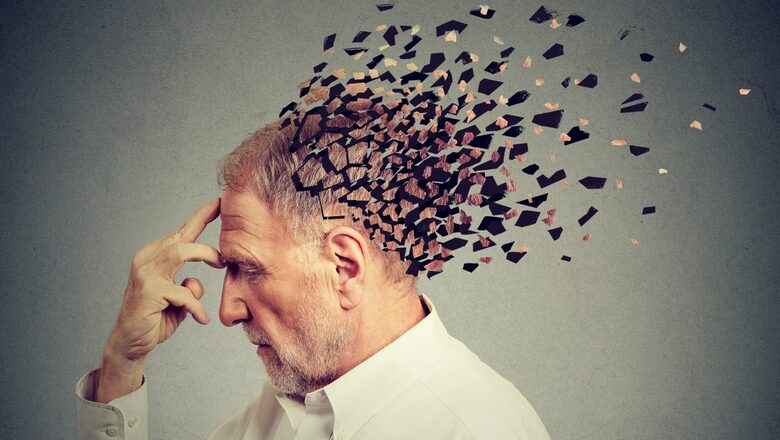
views
September is World Alzheimer’s Month and September 21, 2023, was World Alzheimer’s Day. According to Alzheimer’s Disease International, the theme for the month-long campaign is “Never too early, never too late”.
In this piece, I will begin by putting India in the context of dementia in general and Alzheimer’s disease in particular, and thereupon discuss why India is at the cusp of an inevitable dementia crisis, what is the true burden to the country and caregivers (mainly family), challenges in dementia and Alzheimer’s management in India and why India has to get its act together.
But first, I will step back a little to the broader demographic compass of India.
India Set to Dethrone Mainland China as Most Populous
India as per United Nations World Population Prospects, in April 2023, with a population of 1,42.57 crore people, matched and then surpassed the population of mainland China to become the most populous country in the world. As per the Government of India’s most recent data, as of July 2023, with 139 crore people, the population of India was a tad lower than China. As the 2021 India Census has not been conducted yet, both numbers are likely to be inexact. But the truth beckons that with the Chinese population having started shrinking in 2021 and the Indian fertility rate being above the replacement rate of 2.3, sooner rather than later, India will become the most populous country in the world and the Indian population will continue to rise.
India Also Greying Fast
With a median age of 28.2 years, India is a country in the throes of a ‘demographic dividend’. But India is also home to 18 per cent of the world’s population and the current life expectancy of Indians in 2021 — though lesser than the world’s average life span of 72.81 years — has gone up to 69.96 years, a 0.33 per cent increase from 2020.
This means that in absolute terms, the elderly population of India (60 plus) is growing at a rate faster than ever. In 2021, India’s elderly population according to the National Statistical Office (NSO)’s Elderly in India 2021 report increased to 13.8 crores from 10.4 crores in 2011. It is further set to increase by 41 per cent in a decade to 19.4 crore in 2030. By 2030, people aged 60 years or above in India are expected to outnumber children under age 10. In percentage terms, the share of the elderly population in the total population has risen from 8.6 per cent in 2011 to 10.1 per cent in 2021 and is projected to touch 13.1 per cent in 2031.
And the Number Just Got Bigger
It is estimated that by 2050, India’s elderly population will be 33.2 crore or 20 per cent of the then total population. By 2060, the elderly population is expected to be a tad higher than 25 per cent of the total population. It brings home the question – is India as a nation and society ready for this explosion of the amount of elderly which by 2050 will be higher than the total current population of the United States of India?
Dementia Hits Elderly Hard
As per the World Health Organisation (WHO), though dementia is not an inevitable consequence of biological ageing, age is the strongest known risk factor for dementia. Truth beckons that most forms of dementia blow the mind away, often faster than slower and mostly, there is no cure for it. The best the humans can expect at the present level of scientific knowledge is palliative care.
Global Burden of Dementia
As per WHO data-
- Currently, 55 million people have dementia worldwide, out of which over 60 per cent live in low-and middle-income countries. Every year, there are nearly 10 million new cases.
- Dementia is currently the seventh leading cause of death and one of the major causes of disability and dependency among older people globally.
- In 2019, dementia cost economies globally 1.3 trillion US dollars, approximately 50 per cent of these costs are attributable to care provided by informal carers (e.g., family members and close friends), who provide on average 5 hours of care and supervision per day.
- Women are disproportionately affected by dementia, both directly and indirectly. Women experience higher disability-adjusted life years and mortality due to dementia, but also provide 70 per cent of care hours for people living with dementia.
Biggest Common Denominator of Dementia
Conservatively speaking, accounting for 60-70 per cent of total dementia cases, Alzheimer’s disease is the most common form of dementia. Alzheimer’s also has a special characteristic; it differs from other geriatric diseases in the sense that its early symptoms are often confused with those of old age and its onset is often missed.
Dementia, Alzheimer’s and India
When it comes to dementia and Alzheimer’s disease, what is true for the world is truer for India. Dementia India Report 2010 gave a gross estimation of about 3.7 million Indians with Dementia and the societal cost of dementia was about Rs 14,700 crore. The situation has significantly worsened in the last decade. The latest comprehensive study ‘Prevalence of dementia in India: National and state estimates from a nationwide study’ (Volume 19, Issue 7 Alzheimer’s & Dementia Journal, July 2023), spells serious trouble for India.
- The estimated dementia prevalence for adults aged 60 plus in India is 7.4 per cent.
- Already, about 8.8 million Indians older than 60 years live with dementia.
- Dementia is more prevalent among females than males and rural than in urban areas.
- Significant cross-state variation exists in dementia prevalence.
Even if 7.4 per cent elderly are hit by dementia, the number of dementia patients in India will be 14.4 million in 2030 and 24.6 million in 2050 assuming that the percentage of prevalence does not worsen further. Most of these dementia cases will be of Alzheimer’s subtype.
Causes of Alzheimer’s Disease
Dementia is the worst form of brain disease. Simply put, dementia is the name for a group of symptoms associated with an ongoing decline of brain functioning. It affects memory, thinking skills and other mental abilities. Alzheimer’s disease is the most prevalent form of dementia in India. It is often said that Alzheimer’s blows the mind away.
The exact causes of Alzheimer’s disease are not yet fully understood, although a number of things are thought to increase its risk including age, family history, untreated depression (depression can also be one of Alzheimer’s symptoms) and lifestyle factors and conditions associated with cardiovascular disease.
Symptoms of Alzheimer’s Disease
The symptoms of Alzheimer’s vary wildly from one person to another. Memory problems are typically among its first signs. The decline in non-memory aspects of cognition, such as finding the right word, trouble understanding visual images and spatial relationships, and impaired reasoning or judgment, also spell the early stage of the illness. As the disease progresses, symptoms become more severe and include increased confusion and behaviour changes. Alzheimer’s typically progresses clinically in several stages: preclinical, mild (sometimes called early-stage), moderate, and severe (sometimes called late-stage). The problem with the disease is it has no cure. Worse, there rarely are medicinal interventions that can even delay its progression. And it is truly complicated. There still is no comprehensive understanding of what causes the disease or who is destined to develop it. And those who get it have no idea what has hit them and their caregivers grapple in the opacity of the black hole.
Challenges in Alzheimer’s Care in India
The armamentarium of pharmacology is conspicuous by the absence of medicines which can even temporarily alleviate the progression of Alzheimer’s. Even in the US, barely half a dozen drugs have been approved by the FDA to treat it, but they address early symptoms, and none have been shown to work very well over a longer duration. Palliative care is the only treatment available to patients while they slide fast to the other world.
In India, forget care and treatment, even the diagnosis of Alzheimer’s is a humungous problem. All types of experts who can somewhat diagnose the illness (geriatrician, geriatric psychiatrist, geropsychologist, neurologist, neuropsychologist), are simply nonexistent except in metropolises. Irrespective of the social strata of the patient, by the time the disease is diagnosed, it is too late.
Family Sole Caregiver in India
India is a nation which today proudly talks of “One World, One Family”. Historically, India was known for its unique social compact and culture, of immense respect for elders and deep family ties, Unsurprisingly then, immediate or extended family members were the main caregivers of the elderly at home, sick or not. But this social compact is crumbling, India is urbanising fast, joint family structures are getting replaced by nuclear families, children are migrating and even those who are there have an increasing tendency to treat elders as financial burden. Worse, most Indians have no social safety net.
Time to Reboot India that is Bharat
Most dementia/Alzheimer’s symptoms worsen over time. As the disease progresses, the need for help with personal care increases. People with dementia may not be able to recognise family members or friends, develop difficulties moving around, lose control over their bladder and bowels, have trouble eating and drinking and experience behavioural changes such as aggression, that are distressing to the person with dementia as well as those around them.
It is rebooting time. The first task for the nation is to recognise the worsening crisis. Southern states which are both urbanising and ageing faster already have humungous problems in hand. It is time to develop national, state and city-centric strategies immediately. Resources in terms of money, manpower, medicines, research and palliative care facilities have to be upgraded fast. There is a set of patients who have no one to care for or no money to get cared for. Make no mistake, these people are the government’s responsibility. The sooner India takes cognizance of it, the better.
Akhileshwar Sahay is a Multi-disciplinary Thought Leader and India-based International Impact Consultant. He was Member of Government of India Mental Health Policy Group and Member of Central Mental Health Authority (CMHA). Sahay works as President Advisory Services of Consulting Company BARSYL. Views expressed in the above piece are personal and solely that of the author. They do not necessarily reflect News18’s views.




















Comments
0 comment